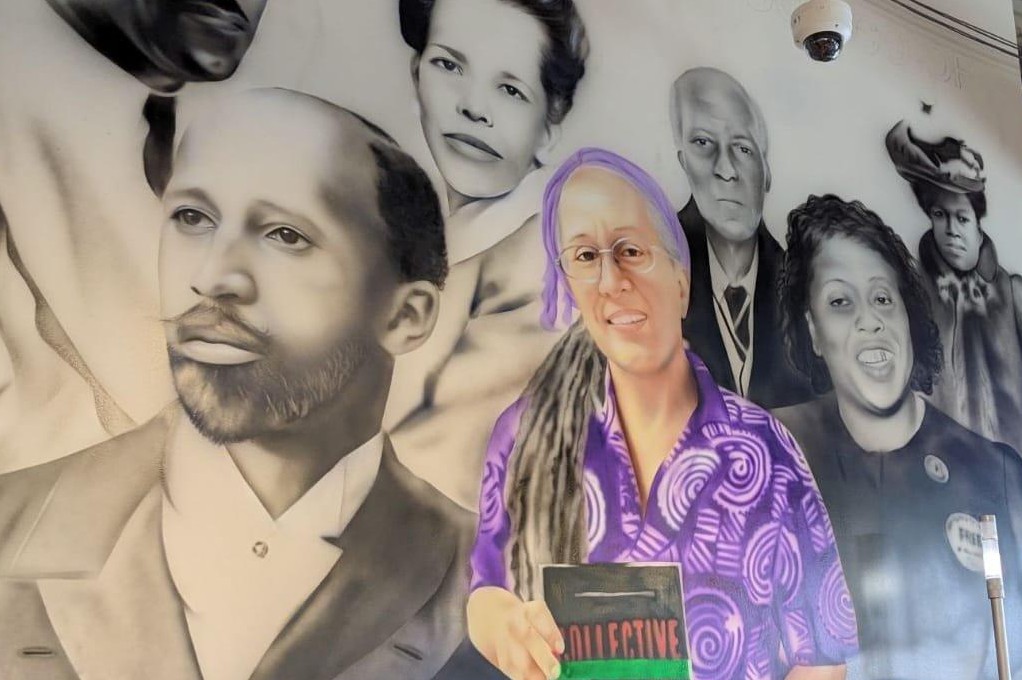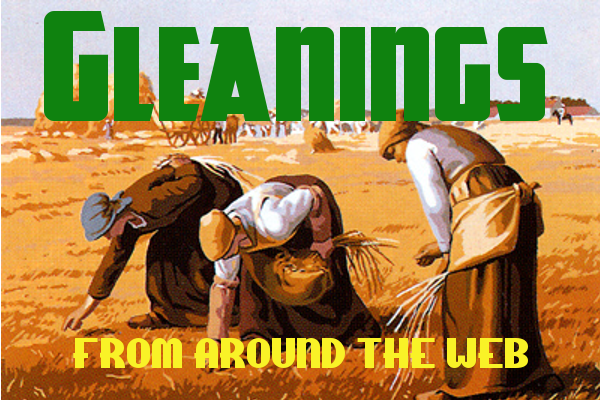GEO member Jessica Gordon-Nembhard's book Collective Courage: A History of African American Cooperative Economic Thought and Practice was first published in 2014, and quickly became a key text for the US cooperative movement. The publishers, PSU Press, have now issued a 10th Anniversary Edition, and so we thought it was an appropriate time to look back on the impact that Jessica's book has had. Malikia Johnson interviewed cooperators from around the country to hear about how Collective Courage has impacted their work.
Then, Lauren Hudson and Evan Casper-Futterman joined Josh and Chris on the last GEO monthly livestream to discuss their upcoming training series from People's Hub, focused on the theory and practice of creating regional solidarity economy networks.
Celebrating Collective Courage
10 Years of Inspiring Cooperators Worldwide
by Malikia Johnson
Collective Courage is a book unlike many of its kind because it so beautifully bridges the gap between research and activism...The book sheds a new light on historical figures we were familiar with in a social context but never an economic one. It encourages readers to look beyond traditional narratives and recognize the multifaceted approaches used to combat systemic oppression.
Elements For Regional Solidarity Economies
by GEO Collective
We're joined by Lauren Hudson and Evan Casper-Futterman for a discussion of the upcoming Peoples Hub training the pair will be leading this year, focused on providing the skills and knowledge necessary for organizers to create regional solidarity economies.
Meet the Cleaners Taking Control of Their Work
The Tyee — "We were just dreaming about having a company where we are all women and fairly paid and a community,” she said. “We had all these ideas, but we didn’t know what we were creating until we put the name on it.” Hernández is one of the three founders of the Cleaning Co-op. Since incorporating in May 2023, the co-operative has grown to employ about 20 women and gender-diverse employees, including cleaners and administration staff. It offers residential, commercial and hospitality cleaning services across Metro Vancouver...
Why Join a Member-Owned Cooperative for Your Healthcare Career
AlliedUP Cooperative — Having a say in your career and its future is important to you, right? Of course, it is. But what if you could take that a step further and have a true say in the direction your company was taking? It’s not just a pipe dream – nor must you start your own business or make a huge investment in another one to achieve this goal. Instead, you can become part of a member-owned healthcare employment co-operative, or co-op for short...
Vermont has history of farming cooperatively, not corporately
Vermont Daily Chronicle — As the cooperative movement gained momentum, Vermont established a state commissioner of agriculture in 1909, with Orlando Martin leading vital educational initiatives for farmers. The federal extension service played a critical role in bolstering local agricultural support. E.S. Brigham, the first commissioner, emphasized the critical necessity of cooperation to tackle marketing challenges and advocated for the formation of cooperative organizations to guarantee fair pricing. By the 1920s, a robust network of cooperative creameries flourished, demonstrating the formidable strength of farmer collaboration...
Community Defense Webinar
Solidarity Research Center (YouTube) — In this first session of SRC’s 2025 Municipalism Learning Series, we’ll explore these pressing questions through a conversation between organizers working on the frontlines of today’s social movements. While drawing on diverse experiences, perspectives and lessons, our panelists are united by a shared conviction that the safest community is an organized community on the path to self-governance...
The effect of mutual aid on the subjective well-being
BMC Psychology — While prior research has demonstrated that mutual aid can contribute to participants’ subjective well-being, the majority of these studies are qualitative and lack clear understanding of the underlying mechanisms. Using a questionnaire survey and structural equation modeling, this study finds that mutual aid significantly enhances the subjective well-being of participants in China. Bootstrap chained mediation analysis shows that this is mainly because mutual aid not only provides material resources to participants but also helps to expand their social networks, thereby enhancing their self-esteem and self-efficacy, and ultimately improving their subjective well-being...
Like what you find on GEO?
Make a Donation Today!
Your tax-deductible contribution ensures that GEO can continue to provide independent grassroots content about the cooperative and solidarity economy movements.
Got something to say?
Let us know. Send your comments, suggestions, rants and article submissions to editors@geo.coop.
Follow us on Social Media
Mastodon: social.coop/@GEO_Collective
FB: facebook.com/GEOCollective
Twitter: twitter.com/@GEO_Collective
Instagram: instagram.com/grassrootsecon
Our mailing address is:
Grassroots Economic Organizing
P.O. Box 115
Riverdale MD 20738-0115




